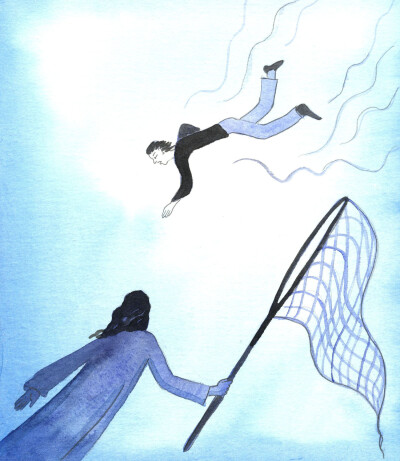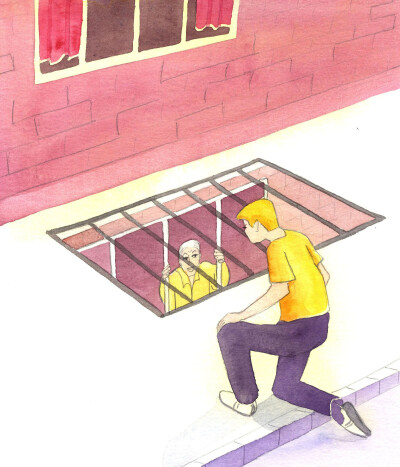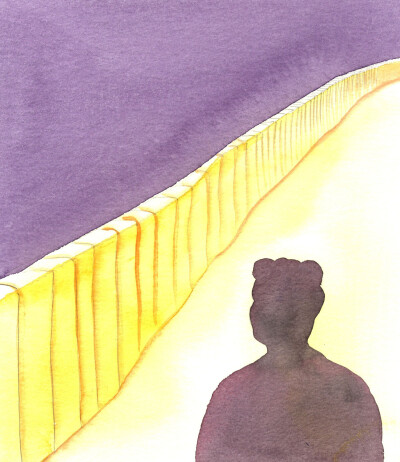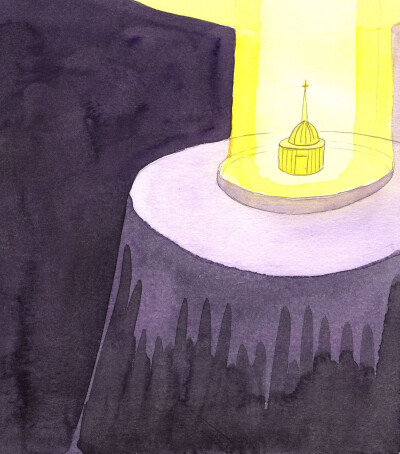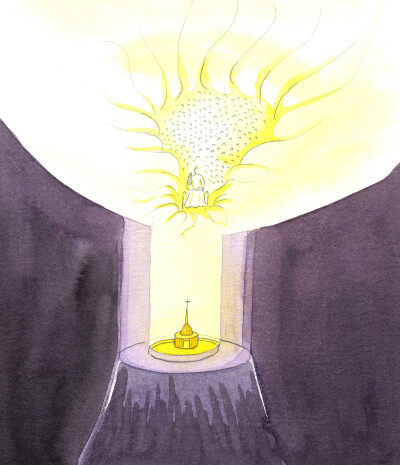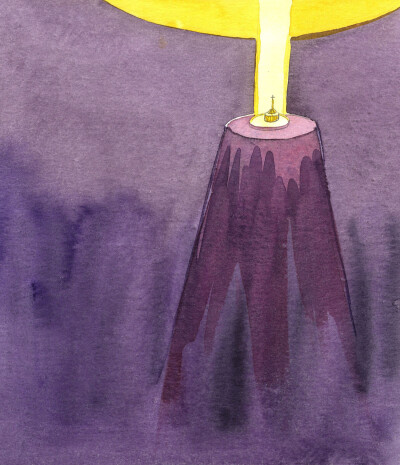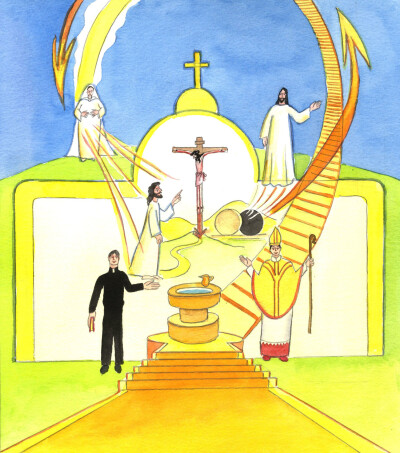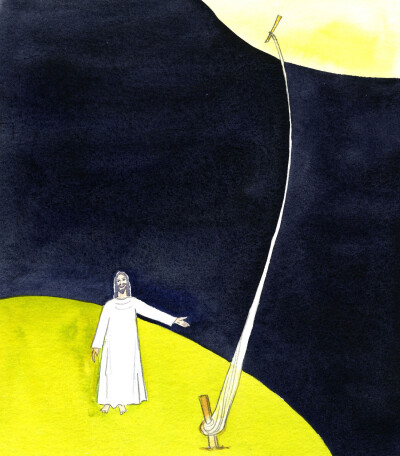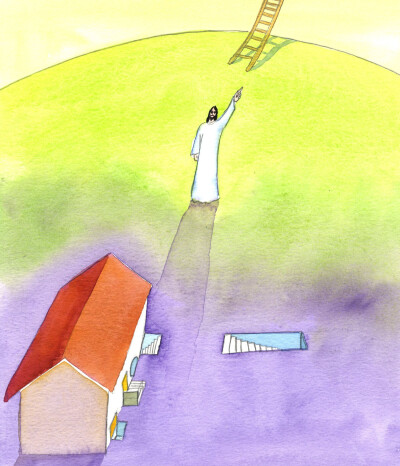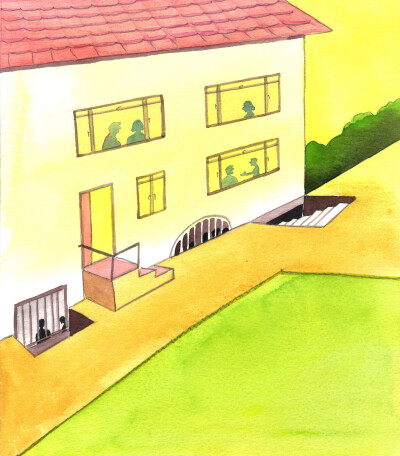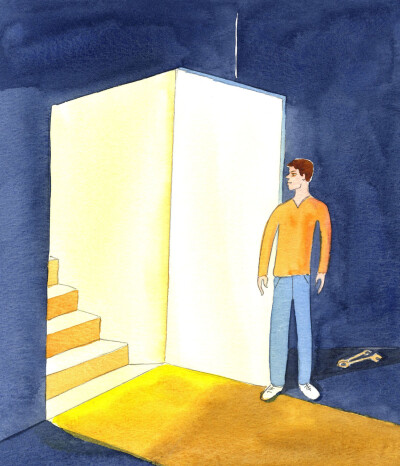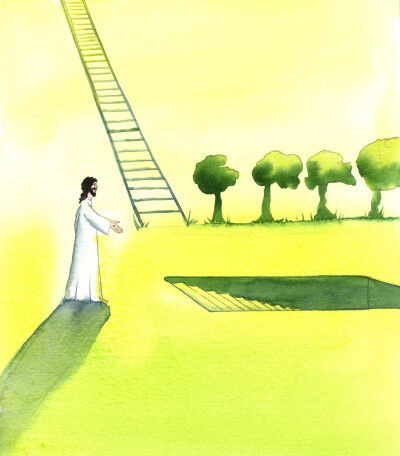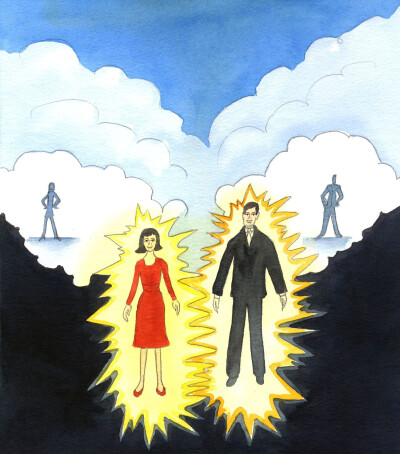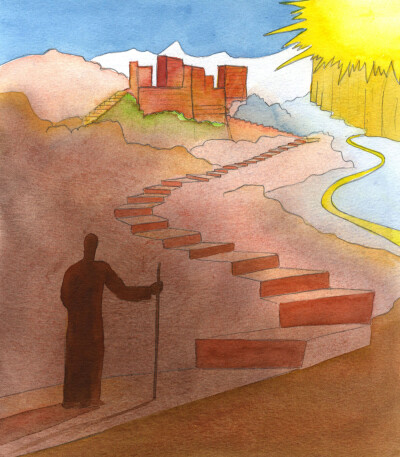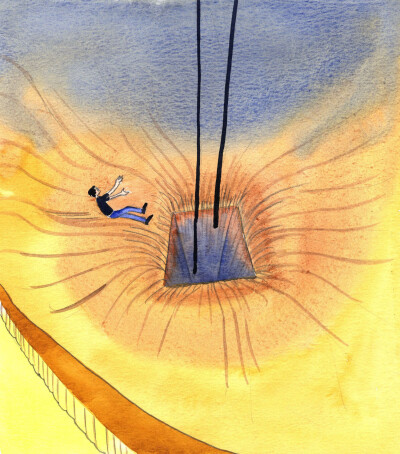Search Page
Showing 681 - 700 of 1372
When someone we care for seems to be 'lost' in sinful behaviour, or alienation from the Church, it's as though he seems to be drowning: but Christ is there with a net, acting to rescue him, if he will allow it. As long as a person is alive, there is hope that he will repent and be saved.
A person trapped in mortal sin who does not want to be rescued and who does not really believe that he is in danger of damnation is like an old man living in a basement room, covered in dirt and dust, and who struggles to climb the steep stairs, but who refuses to live elsewhere. He blithely ignores the danger of being fatally ill, and alone.
God looks with horror upon abortion and related sins; it is as though a large fence separates the lives of those who do God's Will and obey His laws from those who deliberately choose to go against Him. Beyond the 'fence' lies darkness of soul and intellect and little hope of eternal joy.
Around the City of God, where people live according to God's laws, is a place only dimly-lit, where people who sin hide from the light, like medieval outlaws staying outside the city. When people in darkness eventually die, they cannot rise up to Heaven to the God they have rejected but must fall into the Abyss.
Far above the City of God on earth, where people live who do God's Will, God the Father reigns, His hand held up in blessing, as He gazes upon all who love Him. God loves everyone; yet those who choose to live beyond the City, in the darkness of serious sin, did not receive that blessing; nor will they join the Saints in Heaven, unless they repent.
In the whole universe, or the whole of eternity, there is only one Heaven, which people can reach who follow Christ's Way, made by Him to overcome the alienation which followed the Original Sin. There is no alternative to Heaven, for those who refuse to love God, but only a great fall into the depths of the Abyss.
Through the free gift of Divine grace, all that Christ out God did for us in His earthly life has been given to the Church to dispense. It all stemmed from His being made flesh in the womb of the Virgin Mary. As man, He preached the truth, suffered and died for our sins, rose up from the tomb, and by rising up to Heaven made a Way in which we can follow, by our union with Him in our Baptism: a union made stronger by prayer, sacraments, and good works.
When Christ was on earth as the God-man, suffering amongst sinners, and praying for us to be forgiven, it was as though His love for God the Father and for human beings was so great that His prayers could not fail to reach Heaven - thus ending the alienation of mankind. His prayers were heard and granted; and so it's as though He threw out a landline, so that not just He but all who trust in Him can follow His Way into glory.
Just as a branch is gradually weighed down by snow, which has arrived quietly, one snow-flake at a time until a great burden of snow causes the branch to bend, so a person can become weighed down, through carelessness, by one venial sin after another, so that he scarcely notices when he commits a mortal sin, and forgets about his salvation.
The Church is like a house, where the faithful are happy. Only if people leave the 'cellars' of sinful behaviour are they free to follow Christ to Heaven when He calls them, at the end of earthly life. His is the only Way. To refuse His invitation is to be lost forever, unable to ascend to where the Saints live, in Eternal Bliss.
Many people live parts of their lives in a cellar, keeping hidden various thoughts or activities or memories which they do not want anyone to bring out into the light. These are precisely what need to be dealt with before a person can lead a carefree life in Christ, as if in the happy home above the cellars.
A person who has freely chosen to deny the existence of God and to live as though God does not exist and makes no demands of us, is like a man who shuts himself into an underground cellar, in darkness, without the light of Christ. It is so dark that he is in danger of losing the keys of the door, and of imprisoning himself forever in darkness, instead of climbing Christ's ladder to Heaven.
One of the darkest cellars in which people choose to live is the 'cellar' of disbelief which is atheism. A person who refuses to believe in the existence of God cannot therefore thank God for the gift of life, or turn to Him in sorrow-for-sin. By his own acts, he locks himself in a dark cellar, perhaps loses the key, and is unable to follow Christ when, at the end of his life, Christ calls to him.
As well as being fervent teachers, the Church's greatest sinners, when forgiven, have been the most lyrical in their expressions of gratitude to God for helping the weak and hopeless: for example, St. Augustine of Hippo, St. Ignatius Loyola, and St. Francis of Assisi.
God is loving, pure and wise; therefore God chooses, for intimate friendship, a person who loves Him and is reverent, prayerful, humble and obedient. That obedience includes loving his neighbour, and the Church. God cannot bring into close union with Himself those who hate fellow creatures, or believe Jesus was a liar, or hide away in sin, or despise the Church, or are self-important, or pray with little reverence, or despise popular devotions that lead people closer to Heaven, including honour to the Blessed Sacrament, and to the Virgin Mary and other Saints.
The Lord does not look upon each repentant 'child of God' as if classifying us by our past sins; as an ex-greedy banker, or as an ex-prostitute. He thinks of each one in a state of grace as being His glorious, delightful child, whom He loves, and with whom He shares His glory. We must not allow ourselves to be dragged down by our past lives.
There are people in many places who wrongly believe that we can earn Heaven by our repeated prayers and laborious religious practices. Heaven is a free gift, received in the end as a free gift, through faith in Jesus Christ Who Himself came down from Heaven to show us the Way, and to free us from our sins.
The Son of God, the Second Person of the Blessed Trinity, became man, and bore suffering and death in order to fulfil His Mission, for our sakes. He knew He would rise from the dead; and by His Resurrection He proved that He has conquered death; and He can conquer our sins, if we put our trust in Him.
When a person deliberately commits grievous sin, it's as if he leaps out of the Kingdom or out of a state of grace, into a dark area which slopes steadily downwards into a deep pit. No-one gets out of that by his own power, but needs to pray for grace - or to be helped by the intercession of those who love Christ.
When a person deliberately commits grievous sin, it's as if he falls down upon ground which slopes steeply downwards towards a deep pit in the ground. No-one can get out of it by his own power; although the Divine help given through the prayer of friends, during this life, is like a rope by which the sinner can allow himself to be pulled up towards the life of grace.
Showing 681 - 700 of 1372

